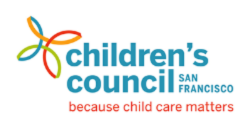Topics
Choosing Child CareFamilies' RightsFamily & Community EngagementFinancial AssistanceLicensing & SafetyParenting & Child DevelopmentProvider ResourcesResource & ReferralSpecial NeedsParents often choose FCC because it is a good match for the family’s home language and/or culture. Additionally, FCC programs serve fewer children than child care centers, and parents may prefer this, especially for their babies and toddlers. FCC homes usually serve mixed-age groups, so the child’s experience is more like being part of a family. In addition, FCC tends to be more affordable and provide more scheduling flexibility, which parents often need.
Family Child Care (FCC) homes are licensed through the Community Care Licensing Division of the California Department of Social Services. Licensed FCC home providers must meet minimal state health and safety requirements. In order to receive a license, all adults living or working in a FCC home must pass a criminal background check.
Additionally, all FCC providers must:
- Be tested for TB and be up-to-date on all state-required immunizations
- Have pediatric CPR, first aid, and preventive health & safety practices certification
- Have a home that meets safety standards for young children, including an emergency evacuation plan
There are two different types of FCC homes:
- Small family child care homes provide care for no more than 8 children at any one time.
- Large family child care homes provide care for no more than 14 children at any one time.
Both small and large FCC homes are limited to caring for 4 infants at a time.
FCC Learning Activities
FCC activities usually include structured activities and free playtime. Here are some examples:
- Arts and crafts
- Drawing, painting, coloring
- Building, dramatic play, water and sand play
- Outdoor activities such as riding wheeled toys, climbing, running around, and playing games
- Group storytime, singing, and dancing
- Field trips, such as traveling to a local park and the library
Choosing an FCC Program
FCC programs are very diverse in their offering. When choosing an FCC, consider asking the following questions:
- What background, experience, and education do the providers have?
- What is the philosophy or approach of the FCC provider?
- What does a typical day look like in the FCC home?
- How many children are in the home every day?
- How many of the children are under age 2?
- What kinds of meals and snacks are served?
- How much time do the children usually spend outdoors?
- How much screen time do children typically get? (Healthy Kids, Healthy Future recommends no more than 30 minutes a week, and zero minutes for children under age 2)
- Is there a FCC Parent Handbook? Does the FCC provider have a written agreement?
- How do children learn about solving problems and conflicts?
- How are difficult behaviors handled?
- Is there a pool? How are children prevented from accessing it?
For more information about FCC regulations, visit CDSS.CA.GOV.
Sources:
https://www.cdss.ca.gov/inforesources/child-care-licensing/resources-for-parents
Was this article helpful?
Similar Resources
Families’ Rights in Choosing Child Care
In California, parents have the right to make the best child care choices for their family. Parents have many options:...Child Care Resource and Referral Agencies (CCR&Rs)
What is a CCR&R? Child care resource and referral agencies (CCR&Rs) serve families, child care providers and the...Licensing and Monitoring for Child Care Facilities in California
Community Care Licensing Information The Department of Social Services, Community Care Licensing (CCL) licenses and moni...Log into your account
Don't have an account? Sign up
Sign up to save your own provider lists
Already have an account? Log in
Create an account with Email Address | Phone Number

